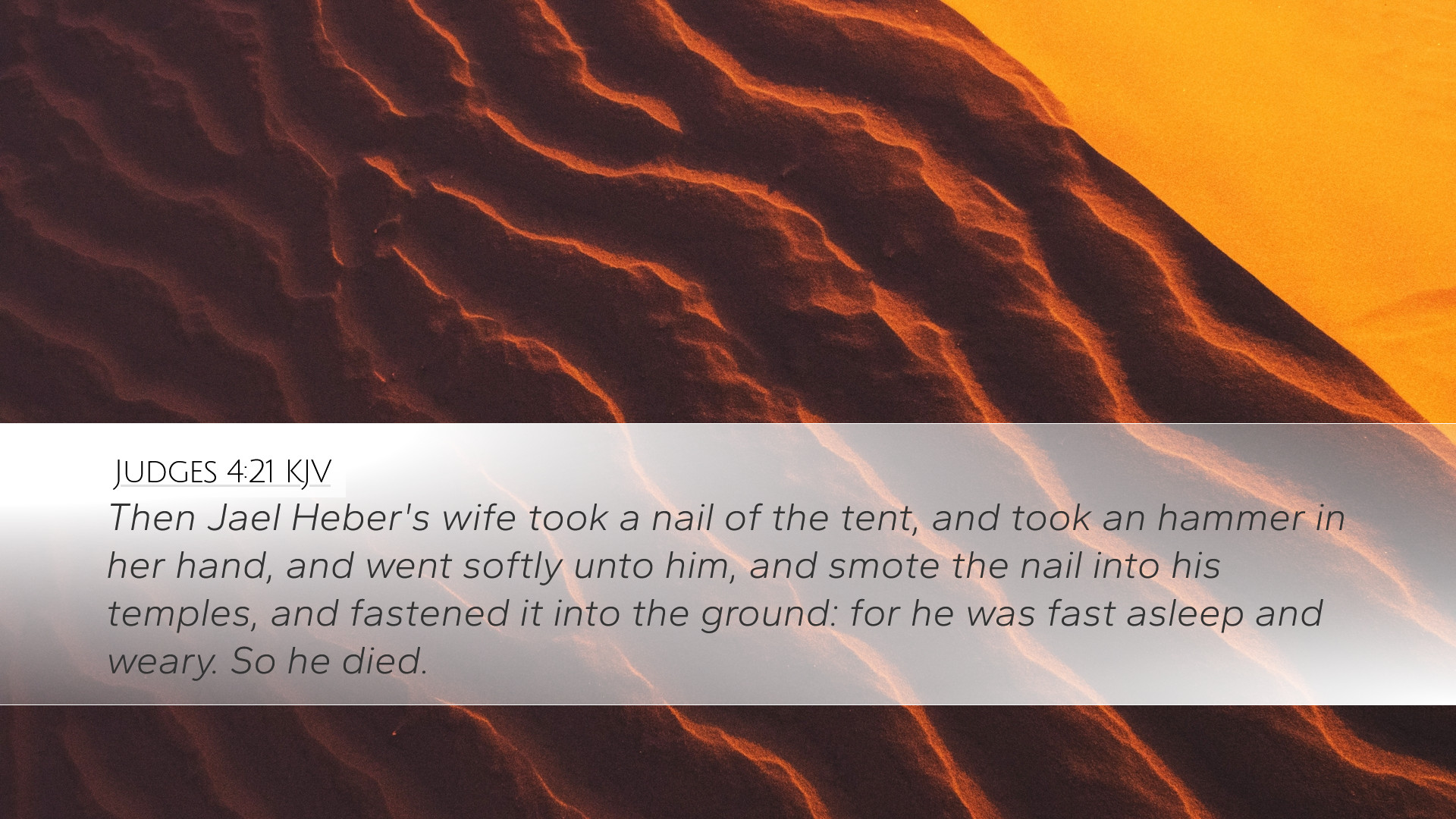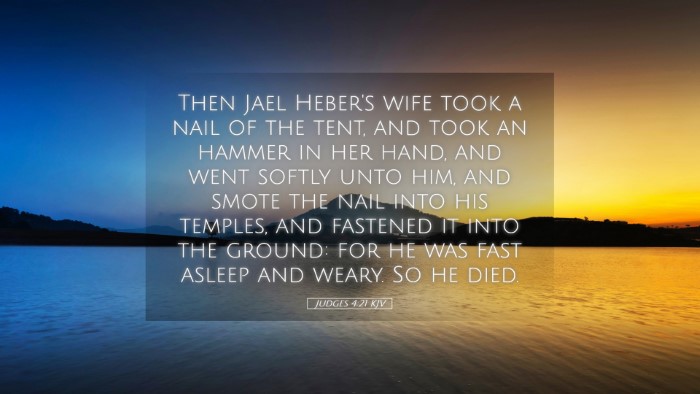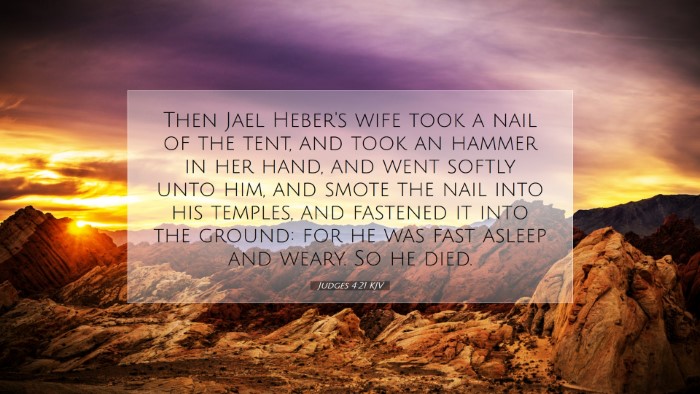Old Testament
Genesis Exodus Leviticus Numbers Deuteronomy Joshua Judges Ruth 1 Samuel 2 Samuel 1 Kings 2 Kings 1 Chronicles 2 Chronicles Ezra Nehemiah Esther Job Psalms Proverbs Ecclesiastes Song of Solomon Isaiah Jeremiah Lamentations Ezekiel Daniel Hosea Joel Amos Obadiah Jonah Micah Nahum Habakkuk Zephaniah Haggai Zechariah MalachiJudges 4:21
Judges 4:21 KJV
Then Jael Heber's wife took a nail of the tent, and took an hammer in her hand, and went softly unto him, and smote the nail into his temples, and fastened it into the ground: for he was fast asleep and weary. So he died.
Judges 4:21 Bible Commentary
Commentary on Judges 4:21
Judges 4:21 states: "But Jael, Heber’s wife, took a nail of the tent, and took an hammer in her hand, and went softly unto him, and smote the nail into his temples, and fastened it into the ground: for he was fast asleep and weary. So he died."
Introduction
This verse records a pivotal moment in the narrative of Israel’s deliverance from Canaanite oppression under Sisera, the commander of Jabin's army. The act committed by Jael is both striking and significant, bearing deep implications in theological and moral discussions. Public domain commentaries offer insights that illuminate the breadth of its meaning.
Contextual Background
To fully appreciate Judges 4:21, we must consider the historical context. Israel is under the oppressive rule of Jabin, a Canaanite king, with Sisera as his military leader. Deborah, a prophetess and judge, has called Barak to arms, promising victory over Sisera. Following their triumph, Sisera flees and finds refuge in Jael's tent.
Character of Jael
Jael is depicted as a crucial figure in this narrative; her actions draw both admiration and moral scrutiny. Matthew Henry emphasizes her boldness, stating that she acted decisively when she had the opportunity, asserting, "God stirred her up for this purpose." In her willingness to engage in violent action, Jael embodies the complex nature of righteousness in war.
The Significance of the Act
Jael’s act of killing Sisera is multifaceted in its implications. On one hand, it is a fulfillment of God's promise of deliverance for Israel. Albert Barnes comments on the prophetic nature within Deborah's orders, where God had promised deliverance through a woman. This fulfillment speaks volumes about God’s sovereignty and the use of unexpected means for His purposes.
Moral and Ethical Considerations
Critics and theologians alike have wrestled with the morality of Jael's actions. Adam Clarke provides a nuanced perspective, suggesting that Jael’s murderous act, while violent, was a necessary means to an end—the deliverance of her people from oppression. This raises questions about the ethics of warfare and the role individuals must sometimes play in executing divine justice.
The Method of Execution
Jael's choice of a tent peg and a hammer is notable. This method, while brutal, reveals the stark reality of the ancient world where survival often necessitated ruthless means. Matthew Henry extrapolates on the nature of her approach, describing how her stealth and cunning mirror a broader theme of God empowering the weak to confound the mighty.
Symbolism of the Tent Peg
The tent peg itself may also symbolize the transient nature of Sisera's reign and the fragility of Canaanite power. The image is powerful; as a tent peg secures a temporary dwelling, so does Jael’s act serve to secure Israel's freedom. This transient power contrasts with the stability that God provides to His people.
Theological Implications
This narrative highlights several theological themes:
- Divine Providence: God orchestrates events leading to deliverance, often using unexpected instruments.
- Gender Roles: Jael's decisive action challenges traditional gender roles of her time, fulfilling God's plan through a woman.
- Judgment and Mercy: While Jael's action is violent, it represents God's judgment against oppression and His mercy towards His covenant people.
Conclusion
Judges 4:21 is not merely a historical account but a profound commentary on divine action through human agency. As pastors, students, theologians, and Bible scholars engage with this verse, it prompts deep reflection on the complexities of moral choices, the nature of deliverance, and the providential hand of God in history.
The narrative of Jael serves to remind us that God’s deliverance may come through unlikely heroes, urging believers to remain open to His providential workings in the world around them.


